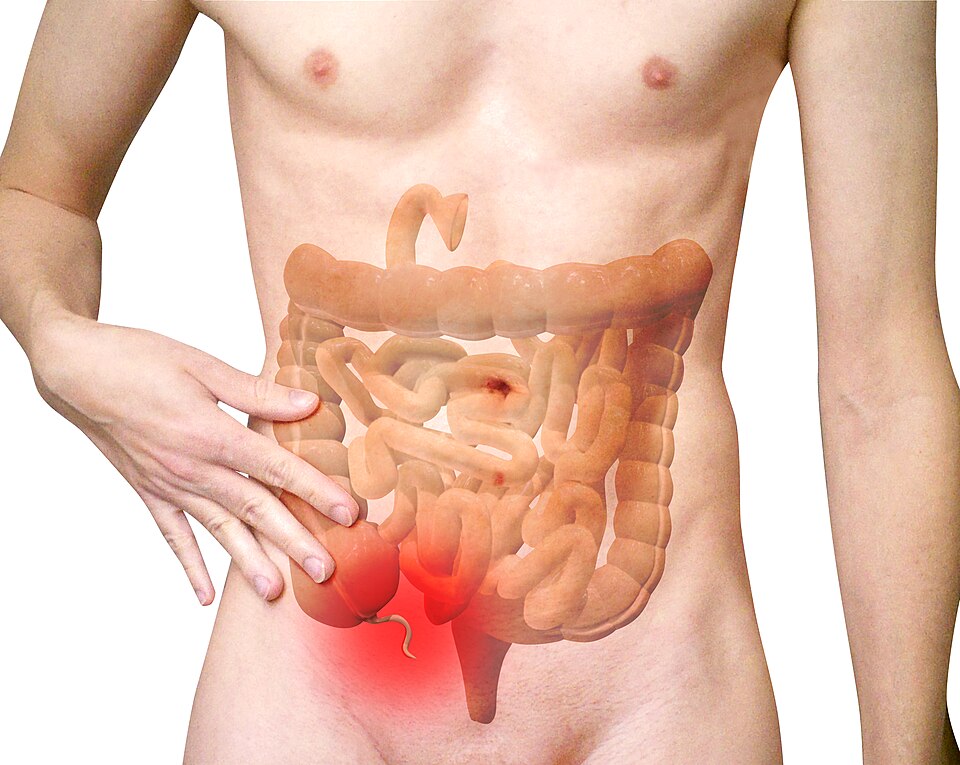CALL TODAY 646-933-3224 | EMAIL
Appendix Surgery: Understanding Appendicitis and Emergency Surgical Care
What is appendicitis and at what point is emergency surgical care necessary? The appendix is a small, tube-like organ located in the lower right abdomen. While its exact function is not entirely understood, it can become inflamed or infected, leading to a condition known as appendicitis. If left untreated, appendicitis can lead to serious complications, including rupture (perforation) and widespread infection. In most cases, the best and safest treatment is an appendectomy, or surgical removal of the appendix.
This guide will cover the causes, symptoms, and treatment options for appendicitis, when emergency surgery is necessary, and what patients can expect during recovery.

What Is Appendicitis?
Appendicitis occurs when the appendix becomes blocked, inflamed, and filled with pus. This blockage may result from:
- Hardened stool (fecalith): A solid mass that obstructs the appendix
- Infection: A bacterial or viral infection that triggers swelling
- Enlarged lymph tissue: Inflammation from other infections in the body
- Foreign objects: Rare cases where seeds or other materials block the appendix
Without prompt medical attention, the appendix can rupture, spreading infection throughout the abdomen (peritonitis) or forming an abscess.
Recognizing the Symptoms of Appendicitis
Appendicitis typically starts with mild pain that worsens over time. Symptoms include:
- Severe abdominal pain: Often begins near the navel and moves to the lower right side of the abdomen
- Loss of appetite: A common early symptom
- Nausea and vomiting: Often follows the onset of pain
- Fever and chills: May indicate infection
- Swelling in the abdomen: A sign of worsening inflammation
- Difficulty passing gas or stool: May indicate a blockage
- Increased pain with movement: Walking or coughing may worsen pain
When to Seek Emergency Medical Care
Appendicitis is a medical emergency. If you experience severe pain, fever, or worsening symptoms, seek immediate medical attention. A ruptured appendix can lead to life-threatening infections and requires urgent surgical intervention.
How Is Appendicitis Diagnosed?
Doctors use several diagnostic tools to confirm appendicitis, including:
- Physical Exam: Checking for tenderness in the lower right abdomen
- Blood Tests: Detecting elevated white blood cell count, indicating infection
- Imaging Tests: Ultrasound, CT scans, or MRI to visualize inflammation or rupture
Surgical Treatment: Appendectomy
An appendectomy is the standard treatment for appendicitis. It is a safe and effective procedure that prevents complications and eliminates the risk of recurrence.
Types of Appendectomy
There are two main surgical approaches to removing the appendix:
1. Laparoscopic Appendectomy (Minimally Invasive Surgery)
A laparoscopic appendectomy is the preferred method when appendicitis is caught early. This technique involves:
- Small incisions in the abdomen
- Insertion of a laparoscope (a tiny camera) for precise removal
- Minimal scarring and a quicker recovery
Advantages:
- Less post-operative pain
- Shorter hospital stay (often same-day discharge)
- Lower risk of infection
- Faster return to normal activities (within 1-2 weeks)
2. Open Appendectomy
An open appendectomy is performed when the appendix has ruptured or if severe infection is present. This procedure involves:
- A single, larger incision in the lower right abdomen
- Manual removal of the appendix
- Cleaning of any infection or abscess
Advantages:
- More effective for complicated cases, including ruptured appendix
Disadvantages:
- Longer recovery (typically 4-6 weeks)
- Higher risk of infection due to potential contamination
What to Expect After Appendectomy
Recovery time depends on the type of surgery and whether complications occurred.
Post-Surgical Recovery Timeline
- Hospital Stay: Same-day discharge for laparoscopic surgery; 1-3 days for open surgery
- Pain Management: Mild pain is common, managed with over-the-counter or prescribed medication
- Activity Restrictions: Avoid heavy lifting and strenuous exercise for 2-4 weeks
- Diet: Start with a soft diet, then gradually reintroduce solid foods
- Follow-Up Appointment: Usually scheduled 1-2 weeks after surgery
When to Contact Your Doctor
While most patients recover without complications, contact your doctor if you experience:
- Persistent fever over 101°F (38.3°C)
- Increasing abdominal pain
- Redness, swelling, or pus around the incision site
- Difficulty urinating or severe bloating
- Persistent nausea or vomiting
Can You Live Without an Appendix?
Yes! The appendix does not serve a critical function in adults, and people live healthy, normal lives after its removal. There are no major dietary or lifestyle restrictions following an appendectomy, though maintaining a balanced diet and staying hydrated helps support overall digestive health.
Preventing Appendicitis
While there is no guaranteed way to prevent appendicitis, maintaining a healthy digestive system may help reduce risk. Some key strategies include:
- Eating a high-fiber diet (fruits, vegetables, whole grains)
- Staying well-hydrated
- Managing gut health with probiotics and fermented foods
- Seeking medical attention for persistent digestive discomfort
Conclusion: When to Consider Surgery for Appendicitis
Appendicitis is a medical emergency that requires immediate attention. If you experience severe abdominal pain, nausea, fever, or signs of a ruptured appendix, seeking emergency care is critical. Surgical removal of the appendix (appendectomy) is a safe and effective procedure that prevents life-threatening complications and promotes long-term health.
If you or a loved one is experiencing symptoms of appendicitis, don’t wait—early diagnosis and prompt surgical intervention lead to the best outcomes. The expert surgeons at Lenox Hill Surgeons specialize in minimally invasive and emergency appendectomies, ensuring the highest level of care. Contact us today for expert surgical consultation and treatment.
Contact Information
LENOX HILL SURGEONS
155 East 76th Street
Suite 1C
New York, NY 10021
646-933-3224
lenoxhillsurgeons@gmail.com

